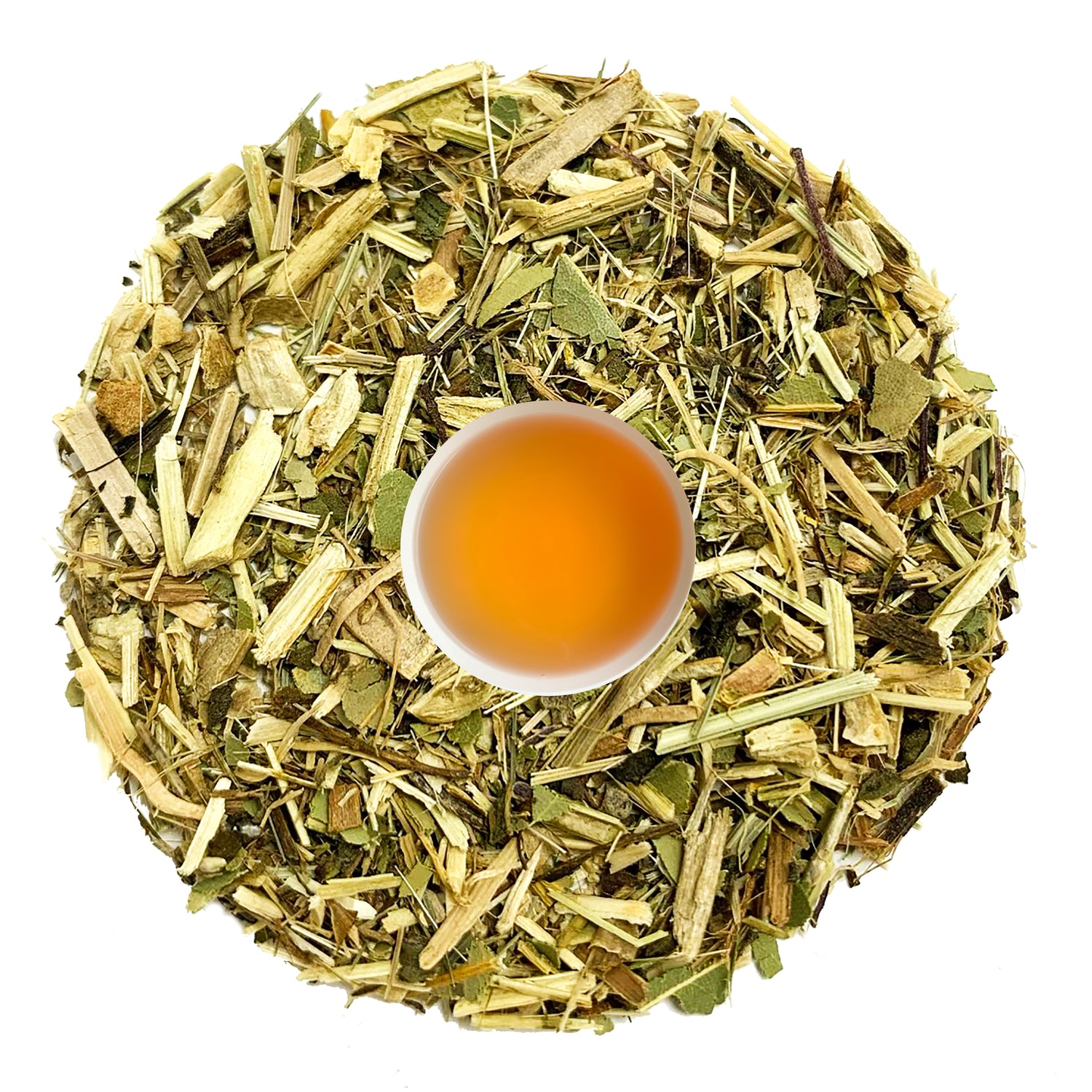
What Is Tulsi in Tea? Discover the Sacred Herb’s Healing Power
Tulsi herbal tea, also known as Holy Basil tea, is a popular beverage known for its numerous health benefits and rich flavor. This herbal tea has been used for centuries in Ayurvedic medicine to promote overall health and well-being. In this blog, we'll explore what makes Tulsi herbal tea special, how to make it, and why it should be a part of your daily routine.
What is Tulsi herbal tea?
Tulsi tea is made from the leaves of the Tulsi plant, also known as holy basil. Tulsi is revered all around the world for its medicinal properties and is often referred to as the "The Queen of Herbs." This tea is caffeine-free and packed with antioxidants, making it a perfect choice for those looking to improve their health naturally. Tulsi, also known as Holy Basil or Ocimum sanctum, is more than just a fragrant herb from South Asia — it’s a symbol of wellness steeped in centuries of tradition. But what happens when you brew this sacred leaf into tea? You get a soothing herbal infusion packed with flavor and benefits. Let’s dive into why Tulsi in tea is gaining love worldwide.
What Is Tulsi in Tea, Really?
Tulsi is a herb revered in Ayurvedic medicine for its adaptogenic properties — meaning it helps your body deal with stress. When added to tea, it becomes a caffeine-free herbal drink that offers more than just taste. It brings calm, clarity, and a little ritual to your day.
You might find it labeled as:
- Holy Basil Tea
- Ocimum Sanctum Infusion
- Tulsi Herbal Tea
Why Do People Add Tulsi to Tea?
The idea of tulsi in tea isn't new. In Indian households, it’s been used for generations to support wellness. Here’s why it stands out:
1. Stress Relief Without the Crash
Tulsi is an adaptogen. That means it helps your body adapt to mental and physical stress. Unlike caffeine, which gives you a jolt and a crash, Tulsi offers steady calm.
2. Supports Immunity & Respiratory Health
Tulsi’s essential oils — like eugenol and camphor — are known to support immune function and ease breathing. It's your herbal sidekick during allergy seasons and cold spells.
3. A Detoxifying Herbal Infusion
Tulsi is a natural cleanser. Its antioxidants help flush toxins and balance your body — all without harsh detox routines.
4. Calms the Mind for Better Sleep
Unlike green or black tea, Tulsi doesn’t contain caffeine. It's perfect for winding down in the evening.
What Does Tulsi in Tea Taste Like?
Tulsi tea has a warm, slightly spicy, and earthy taste — think clove meets mint with a hint of sweetness. It’s refreshing on its own and blends beautifully with other herbs like chamomile, lemongrass, and spearmint.
How to Brew Tulsi Tea the Right Way
Brewing Tulsi tea is simple, but here’s how to get the most from it:
- Use 1 teaspoon of loose-leaf Tulsi Tea (or 1 tea bag)
- Pour hot water (just under boiling, ~90–95°C / 194–203°F)
- Steep for 5–7 minutes
- Enjoy plain, or with a touch of honey and lemon
Want to take it iced? Steep double strength, cool, and pour over ice.
The Potential Health Benefits of Tulsi in Tea
Let’s quickly recap why people love Tulsi herbal infusion:
|
Benefit |
What It Does |
|
Adaptogen |
Helps reduce stress & fatigue |
|
Antioxidant |
Fights free radicals |
|
Respiratory Support |
Helps clear sinuses |
|
Anti-inflammatory |
May help reduce swelling & discomfort |
|
Mental Clarity |
Promotes calm focus |
Tulsi in Tea Across Cultures
In India, Tulsi is worshipped. In the West, it’s catching on as a wellness tea. Whether sipped in the morning or before bed, Tulsi in tea bridges tradition and modern health in one cup
Want to Try Tulsi in Tea?
We’ve got just the brew for you:
👉 05° Tulsi Tea (Sacred Basil Tea) – USDA-Certified Organic
Experience the grounding, detoxifying magic of pure Tulsi leaves handpicked from the Himalayas
FAQs About Tulsi in Tea
Is Tulsi tea safe for daily use?
Yes! It’s caffeine-free and gentle enough for daily wellness routines.
Does Tulsi tea contain caffeine?
Nope — it's naturally caffeine-free.
Can Tulsi tea help with anxiety?
Many drinkers find it calming, thanks to its adaptogenic properties.
Is Tulsi the same as basil used in cooking?
Not quite. Tulsi is Holy Basil — a different variety known for its medicinal uses.










